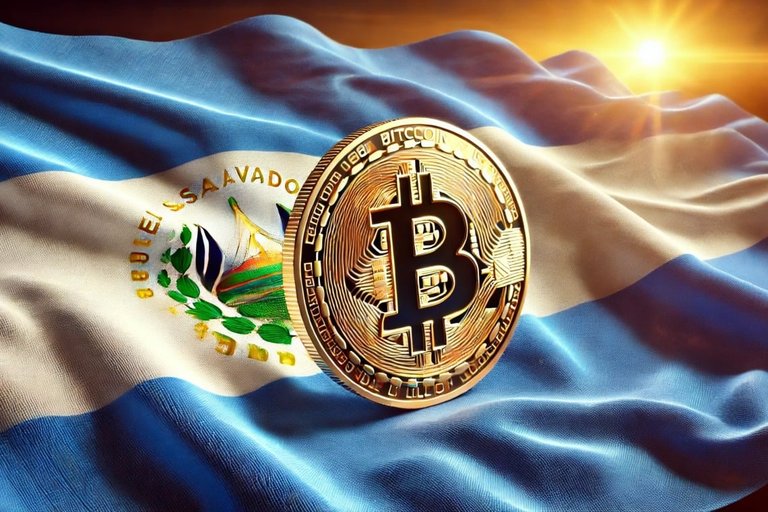
Fidelity Digital Assets analyst Matt Hogan has emphasized that nation-states are more exposed to risks by neglecting Bitcoin allocations than by adopting them. In a recent report, Hogan highlighted that many countries have indirectly acquired Bitcoin—not through proactive, strategic investments, but through government seizures and asset recoveries linked to illegal activities.
For example, nations like the United States have amassed significant Bitcoin holdings via confiscations from criminal enterprises, such as the Silk Road case. However, regulatory frameworks in countries like the U.S. often mandate the auctioning of these assets, preventing governments from adding them to their treasury reserves.
2025: A Turning Point for Bitcoin Adoption?
Hogan anticipates a paradigm shift by 2025, with more nation-states, central banks, sovereign wealth funds, and government treasuries embracing Bitcoin as part of their strategic asset portfolios.
“This is to say, we expect to see growing interest from governments and financial institutions in positioning themselves strategically with Bitcoin,” Hogan remarked, adding that the approach of Bhutan and El Salvador could serve as a blueprint for other nations.
Bhutan and El Salvador: Pioneers in Bitcoin Strategy
Both Bhutan and El Salvador have demonstrated the potential for significant returns on Bitcoin investments within a relatively short timeframe. These nations have capitalized on Bitcoin’s price appreciation while promoting its broader adoption within their borders.
For instance, El Salvador’s bold move to adopt Bitcoin as legal tender in 2021 has yielded impressive gains, despite initial skepticism. Similarly, Bhutan, through its sovereign wealth fund, has quietly built a Bitcoin position, benefiting from its strategic foresight.
Hogan suggests that other nations will increasingly take note of these examples as they consider diversifying their reserves.

The Largest Government Bitcoin Holdings
Currently, the U.S., China, the U.K., Ukraine, Bhutan, and El Salvador hold the largest government-controlled Bitcoin reserves. The U.S. leads with approximately 198,109 BTC, valued at $20.171 billion. However, the majority of this Bitcoin was obtained through seizures tied to criminal activities rather than intentional purchases.
Such holdings underscore the latent potential for governments to formalize Bitcoin positions in their treasuries.
Strategic Reserves and Game Theory: A New Era for Bitcoin
The U.S. and the Strategic Bitcoin Reserve
The concept of a strategic Bitcoin reserve has gained traction, particularly in the U.S., where figures like President-elect Donald Trump and Senator Cynthia Lummis have voiced support.
In a groundbreaking move on July 31, 2024, Senator Lummis introduced the Bitcoin Act of 2024. This legislation proposes that the U.S. Treasury acquire up to 1 million Bitcoin over five years, equivalent to about 5% of the total Bitcoin supply. The bill mandates a 20-year holding period for these assets, aimed at countering inflation and bolstering the U.S. dollar’s long-term stability.
Hogan believes this could trigger a domino effect, compelling other nations to follow suit. “If the U.S. implements this strategy, the political and financial game theory at play will likely force other countries to act similarly,” he explained.

The Role of Secrecy in Bitcoin Accumulation
Fidelity also warns that nations planning to adopt Bitcoin may do so covertly to maintain a competitive edge. Publicly announcing adoption plans could drive up demand, inflating Bitcoin’s price and undermining their ability to acquire the asset efficiently.
“Nations have no incentive to reveal their strategies prematurely,” Hogan noted. “If Bitcoin adoption becomes a geopolitical strategy, countries will act in secrecy to secure their positions before prices escalate further.”
Implications for Global Finance
Fidelity’s analysis paints a picture of a world where Bitcoin becomes a cornerstone of sovereign financial strategy. If nations begin to accumulate Bitcoin as a hedge against inflation and geopolitical instability, it could redefine global reserve dynamics.
While skepticism persists, the examples of Bhutan and El Salvador, combined with the potential adoption of the U.S. Bitcoin Act, signal a shift toward greater institutional and governmental involvement in Bitcoin.
As the narrative evolves, the coming years may see Bitcoin transition from a speculative asset to a recognized component of national financial strategies.
I'm starting to wonder if there will come a point where Bitcoin becomes the preserve of nations and mega-corporations, with individual holders squeezed out.
I can even see a situation where private ownership of BTC is banned by various countries, with steep fines and prison sentences for anyone they find holding any, and of course the BTC confiscated confiscated and added to national reserves. I can see the US, UK, EU, Canada and Australia leading the way on this.
It's already becoming. Also Meta shareholders asked to invest in Bitcoin with Meta's reserves